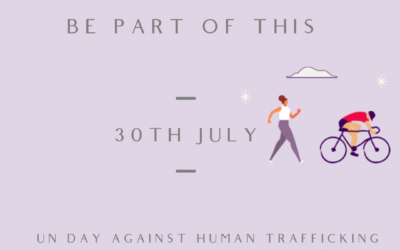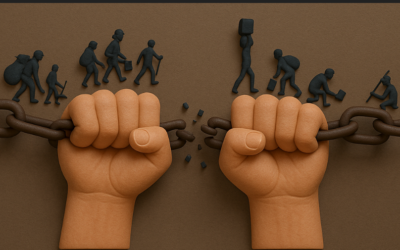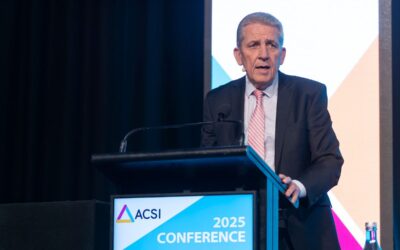Is Your Coffee Brewing Slavery? How do you know and what can you do to be sure you aren’t?
Every morning, the process of getting a cup of coffee is pretty simple. Because you just put your coffee grounds into your coffee machine and hit start. Even though this process is easy for us, there is so much more that goes into growing and preparing the coffee grounds that we buy in stores.
What goes into making the perfect cup of coffee? Producing that perfect cup of coffee that you and I have grown to love is much more involved than just pushing a start button. Here you can learn about the full process of harvesting, processing, packaging, and distributing this product.
Coffee Bean Belt
The coffee industry is booming with coffee being the second most traded commodity worldwide. According to the United Nations Conference on Trade and Development (UNCTAD), coffee is second with oil being the most traded commodity.
The ‘Bean Belt’ region, can be seen in the image above. This is where most of the world’s coffee beans are cultivated due to the perfect growing conditions. So, some of the largest producers of coffee are Colombia, Brazil, Ethiopia, Vietnam, and Indonesia.
In 2019 Brazil was the largest exporter of coffee. Thus, making about AUD 6.19 billion from exported coffee alone.
The largest importers of coffee are the United States, Japan, Switzerland, Canada, and multiple countries within the European Union. The Observatory of Economic Complexity found that in 2019 Australia only imported about 1.43% of the coffee produced worldwide. This coffee was primarily from Switzerland, Brazil, Vietnam, and Colombia. Of the primary countries Australia imports its coffee from, Brazil, Vietnam, and Colombia have been known to use slave labour.
Slavery in the Coffee Industry
Slavery in the coffee industry is not a new topic and has been used for centuries. The United Nations adopted the Universal Declaration of Human Rights in 1948. Australia voted in favour of this declaration along with 47 out of the 58 members. This document states in Article 4 that “no one shall be held in slavery or servitude; slavery and the slave trade shall be prohibited in all their forms.”
The UDHR is recognized as having paved the way for creating and adopting multiple human rights treaties and regulations being practised internationally. Unfortunately, slave labour is still used in some locations and industries. So looking at the coffee industry, child labour, forced labour, and debt bondage are not uncommon.
The countries listed below are just a few of the places Australia imports its coffee from. And in these countries, it is not uncommon to find slave labour being used.
Brazil
According to the U.S. Department of Labor, there are many reports of individuals being forced to work in the coffee industry in Brazil. And particularly on coffee plantations.
Forced labour within the coffee industry is a recurring issue. A large number of individuals in the state of Minas Gerais are having to live under these conditions. This state is responsible for about 70% of the coffee produced in the country. Most of the individuals working at these coffee plantations are employed informally without a contract.
Why don’t they Complain?
Raising complaints about working conditions and low wages is difficult. Several workers have also reported that they are afraid of being punished for complaining about poor living and working conditions. Some workers have also had their working papers confiscated by their employer which makes leaving these plantations much more difficult, especially as a migrant worker.
Concerning this, many individuals, especially migrants, have to pay their ‘debt’ of travel expenses, food, housing, etc to their employer before they even think of leaving. In these cases, many employers will overcharge these individuals. Employers are known to recruit workers from poorer neighbouring states. They often lie about working conditions, wages, work hours, and the quality of living conditions. These individuals can be forced to work up to 15-hour workdays. And they often receive less than minimum wage pay.
Some workers also have been placed in precarious and unsanitary housing accommodations. They have no access to potable water, bathrooms, or areas with the equipment to cook meals for themselves.
It is not uncommon for children to be pulled from school to work alongside their parents at these coffee plantations. Especially during harvest season or when the price of coffee rises. When the price of coffee rises, the increase in coffee value provides an incentive for families to withdraw their children from school to work.
A study in Brazil found that “child labour rates were approximately 37% higher—and school enrollment 3% lower—than the averages in regions where coffee is produced.” It was seen that children as young as 6 years old often worked 10 hours a day. They are exposed to many health and safety hazards. Examples are – dangerous levels of sun exposure, physical injuries from equipment or lack of equipment, and unsafe exposure to pesticides.
Vietnam
Over 1.75 million Vietnamese children are labourers. This encompasses 10% of the population of individuals under the age of 18. Child labour in Vietnam consists of children who are forced to work long hours, in crowded factories or at agricultural farms. Children sometimes work up to 42 hours per week with little or no pay. Most of these children are also not allowed to go to school.
Human trafficking of children for labour, domestically and internationally, is an ongoing issue throughout Vietnam. This is partly because the parents of these children are unaware of the possibilities of human trafficking. Traffickers target rural villages. They offer to take kids to cities to give them vocational training or teach them technical skills. Parents normally agree to send their children away. Because they are unaware of the risks of human trafficking and believe this could benefit their child and the family. Instead of receiving the training promised, these children are taken from their homes and are forced to work in factories or on farms. Some of the farms these children are trafficked to are Vietnamese coffee plantations.
Data collected from Vietnam’s National Child Labour Survey of 2012 showed that an estimated 34,000 children under the age of 17 were being exploited on coffee plantations. Of these 34,000 children, 9% were 5-11 years old, 28% were 12-14 years old, and 63% were 15-17 years old.
Colombia
Similar to Brazil and Vietnam, children are working on coffee plantations engaging in long workdays of strenuous physical work. Usually, these children are brought to work at the same plantation their families are working at as unpaid workers. Many families work as an economic unit. Meaning that all family members are contributing to the shared profit made at the end of each harvest. This means the more individuals that are working to harvest the crop, the more crop can be sold. Resulting in more money this family will make. According to the International Labour Organization, of all child labour found in agriculture globally, the majority (68.4%) is on family farms.
Coffee Brewing that is Ethically Sourced
Brazil, Vietnam, and Colombia are not the only countries where slavery is used to produce the coffee that we have the luxury of buying from the store. Slavery in the coffee industry, especially in the Bean Belt, is an ongoing issue in the international community. This is especially prominent when looking at where your coffee comes from.
There are many different stages coffee beans go through before being packaged and shipped to be sold by huge corporations. Due to the multiple stages of production, it is hard to keep track of where this coffee comes from. Without knowing where this coffee originated and who processed it, it is difficult to know if this coffee was produced ethically without slave labour.
In 2018, Australia took a big step in the right direction by establishing the Modern Slavery Act. This act “requires some entities to report on the risks of modern slavery in their operations and supply chains and actions to address those risks, and for related purposes”. You can look up specific company’s modern slavery statements HERE.
Other organizations like Common Code for the Coffee Community (4C), Fairtrade, Rainforest Alliance, and UTZ Certified, have their own certifications companies can apply for. Because these certifications ensure products that are manufactured, harvested, and sold by a company have to meet certain accepted standards and criteria. So they are most likely to be ethical.
Filter Slavery From Your Coffee
By supporting The Freedom Hub, you are filtering slavery from your morning coffee. Because The Freedom Hub always provides its customers with the guarantee they are drinking ethically sourced coffee.
Our ‘Freedom Fighter’ specialty coffee is harvested on a farm that uses its profits to rescue and rehabilitate child soldiers. Then, it is roasted in Australia. At our cafe in Waterloo, 100% of the profits from this coffee go towards supporting survivors of modern slavery in Australia. We support survivors through our Survivor School where survivors are encouraged, provided support, and taught the necessary skills to succeed in the workplace and prepare for the future.
The Freedom Fighter specialty coffee is becoming a popular coffee amongst businesses, clubs, and large churches who purchase it wholesale, to make the statement that they are against child labour. Contact us if you are interested in our wholesale prices.
If you would like to support us in our mission to end slavery in Australia and support survivors of slavery, you can visit us at our café location in Sydney, Australia, or at our website.
Other Resources you might like:
Three Reasons Locals Love Freedom Fighter Coffee
Join our Community
If you would like to volunteer, contact us here.
Or if you would like to get our monthly update, opt-in here.
If you would like to support a survivor, donate here. (tax-deductible)
SO THANK YOU FOR TAKING THE TIME TO READ OUR BLOG XX (Please review it or share it with others.)
Written by Ashley Clisby – Freedom Hub Volunteer
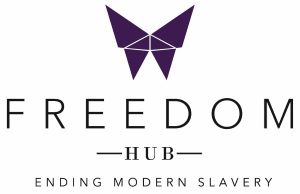

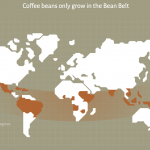
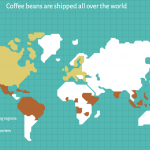 Coffee Exports
Coffee Exports